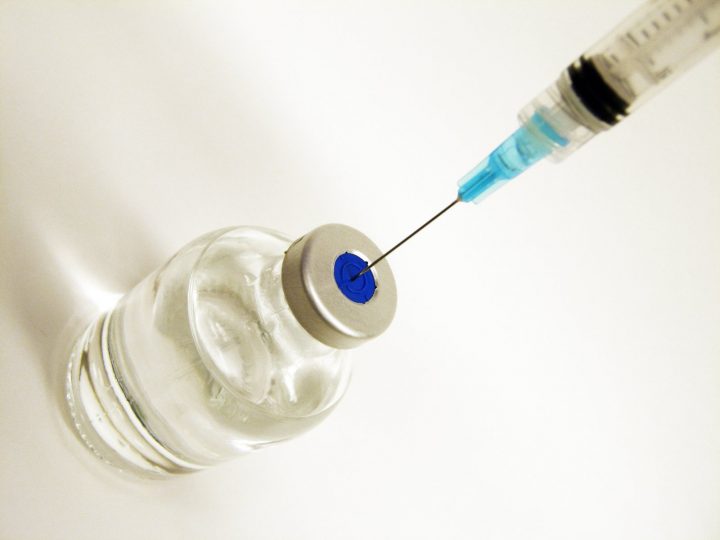
The international community received a welcome dose of optimism earlier this week when Moderna Inc., a Massachusetts-based biotech company, released encouraging evidence of its progress in developing a vaccine effective against COVID-19. According to early data released by the company, the Moderna vaccine has proven to be 94.5% effective against COVID-19 upon evaluation by members of the Data Safety and Monitoring board, an independent panel assessing the company’s data from clinical trials. The news comes after a significant milestone was reached earlier this month by Pfizer’s vaccine, developed in partnership with BioNTech, which proved to be more than 90% effective in preventing COVID-19, adding to the growing portfolio of vaccine candidates currently under development.
According to Dr. Anthony Fauci, the USA’s top infectious disease doctor, vaccinations could begin in the second half of December, with priority being granted to high-risk groups, including the elderly, health care workers, and individuals with underlying medical conditions which make them more susceptible to a severe development of the infection. Dr. Fauci has said that vaccinations are likely to become available for the remaining population next spring, with administration taking place over a series of months following introduction.
Clinical Trials:
During the course of Moderna’s clinic trials, 15,000 participants were given a placebo. After several months, 90 participants given the placebo developed COVID-19, with 11 developing a severe form of COVID-19. The vaccine was administered to 15,000 participants, among which only five participants developed COVID-19. Severe illness was not reported among any participants in the trial. With regard to side effects, the company states that the vaccine has not produced serious side effects. A small percentage of participants reported mild headaches and body aches. The clinical trials will continue, as the protection rate from the virus is subject to fluctuations as more COVID-19 infections are discovered and factored into the calculations. Further, the longevity of protection from COVID-19 is currently under scrutiny, prompting experts to encourage cautious optimism as developments continue to unfold.
mRNA Vaccines:
The Moderna and Pfizer vaccines have produced similar results because of the companies’ novel approach to vaccination, which utilizes mRNA. Traditional vaccination involves the introduction of live, attenuated versions of the bacteria or virus, encouraging an immune response. The vaccination imitates an infection, producing T-lymphocytes, which attack cells in the body that have already been infected, and B-lymphocytes, which produce antibodies to attack antigens which are left behind by macrophages, effectively yielding immunity against the virus or disease.
Within the past decade, promising research has emerged, which has effectively enabled mRNA to become a capable therapeutic approach for the prevention and treatment of infectious diseases. An mRNA vaccine uses a different therapeutic approach that leverages the cellular process of protein production. An mRNA vaccine works by introducing an mRNA sequence coded for a disease-specific antigen. Once readily produced in the body, the disease-specific antigen is recognized by the immune system, equipping the body to develop protection against the virus.
The mRNA vaccine is a promising alternative to traditional vaccination, providing several therapeutic and practical advantages to the fight against COVID-19. The vaccines offer the advantage of mimicking aspects of the natural course of viral infection, as mRNA is utilized to produce viral antigen proteins within the cell, which include post-translational modifications—effectively simulating the natural development of viral infection, where viral genetic material is utilized to produce viral proteins. Concerning efficacy, early clinical trial results indicate that the vaccines produce reliable immune responses with limited side-effects. Further, given that mRNA vaccines do not utilize viral or pathogenic particles, they are non-infectious, providing a safer alternative to the traditional approach to vaccine production and potentially playing a role in alleviating potential side-effects. The vaccines can further be produced from DNA templates which are readily available, as opposed to traditional vaccine production which requires the use and availability of mammalian cells. An mRNA vaccine is also advantageous for the practical purposes of commercial production, given that the vaccine would not rely on replicating large amounts of the virus, allowing for standardization of the production process, and providing increased resilience in the fight against COVID-19.
Technical Challenges:
However, mRNA vaccines may pose crucial technical challenges with regard to storage and distribution. Many mRNA vaccines, similar to traditional vaccines, require refrigeration and freezing. Therefore, there are crucial implications for countries with limited storage and refrigeration facilities. In this regard, Moderna’s vaccine is promising, as the vaccine lasts up to 30 days in a refrigerator at a temperature range of 2 to 7 degrees Celsius once thawed. By contrast, Pfizer’s vaccine requires long-term storage at -70 degrees Celsius. A further consideration arises in response to research indicating that COVID-19 antibodies dissipate following a period of time, suggesting transient immunity. Thus, more than one shot may be required for effective immunization. Moderna’s clinical trial administered the vaccine twice, four weeks apart, while Pfizer’s vaccine was administered twice, three weeks apart. In addition, reinfections have the potential to occur as immunity dissipates, requiring additional booster shots following the double-dose of the vaccine, as necessitated by the body’s immune response. However, the question of whether the additional shot will require re-administration remains under scrutiny. Despite these challenges, the development of a wide portfolio of COVID-19 vaccine candidates may alleviate many of the challenges of distribution.
In attempting to face the extensive challenges posed by COVID-19, vaccine candidates will need to prove durable clinical efficacy and safety, while collective efforts from vaccine providers and lawmakers must vigorously seek to establish equitable access and international availability of what is likely and rapidly to become a limited commodity.
